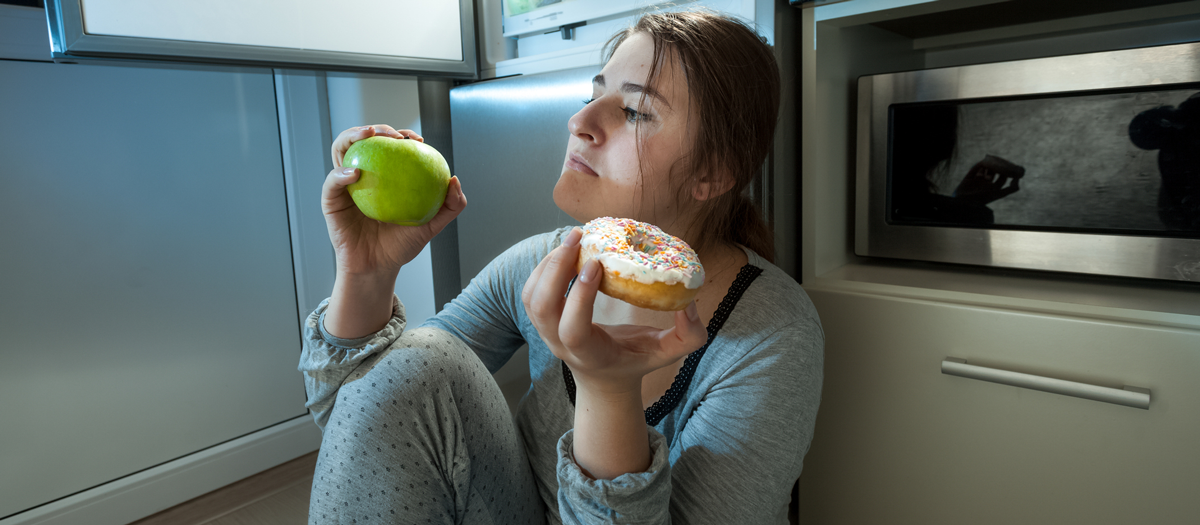The Food – Sleep Connection
January 29, 2021
You're certainly not alone if you've had some trouble sleeping these past months. With disruptions to work, school and social life caused by the pandemic, it's a wonder we sleep at all.
And there's been no lack of reports from experts telling us what we can do to combat our sleeplessness. Among their recommendations: engage in regular exercise, establish a nightly bedtime routine and cut back on screen time and social media.
But another important factor affecting sleep that we may not be considering is diet. And if you're like me, you've come to rationalize the change in diet and the increase in cookies as something medicinal to get you through these trying times. But more research suggests that the foods you eat can affect how well you sleep, and your sleep patterns can affect your dietary choices.
Sugar and Fiber
It may seem that those late night disco fries and coffee may have some connection your sleep. However, it's important to know that eating an overall healthy and nutrient-rich diet affects our brain health and activity — and in turn, our sleep. Researchers have found that eating a diet that is high in sugar, saturated fat and processed carbohydrates can disrupt your sleep, while eating more plants, fiber and foods rich in unsaturated fat — such as nuts, olive oil, fish and avocados — seems to have the opposite effect, helping to promote sound sleep.
Time - Diet - Sleep
There’s also a connection between sleep and how we metabolize food. Diet and food choices help regulate our circadian rhythm. Our circadian rhythms keep our body clock running on time, which in turn keeps all of our bodily functions running on schedule — such as falling asleep at night, waking up in the morning, feeling hungry when we need energy and metabolizing the food we eat.
That means behaviors like shifting our eating patterns or altering what we eat drastically (like switching to a very high-fat diet) can actually reprogram the various clocks our body runs on.
Carbs
Studies have also shown that eating more saturated fat and less fiber from foods like vegetables, fruits and whole grains led to reductions in slow-wave sleep, which is the deep, restorative kind. People tend to fall asleep much faster at night when they consume a high-carbohydrate diet compared to when they consume a high-fat or high-protein diet.
But the quality of carbs matters. More sugar and simple carbs — such as white bread, bagels, pastries and pasta — cause people to wake up more frequently throughout the night. On the other hand, complex carbohydrates provide a more stable blood sugar level, so if blood sugar levels are more stable at night, that could be the reason complex carbohydrates are associated with better sleep.
Some Additional Diet/Sleep Tips
- Monitor Caffeine Intake – Caffeine can stay in your blood for up to 6 hours.
- Cut-Off Alcohol at Night – Sure a drink may make us feel drowsy, but it can also disrupt your sleep.
- Avoid Heavily Spiced and Fatty Foods – These are hard on the stomach and digestion.
- Stay Hydrated – A lack of water dries out your mouth and nasal passages, which might increase snoring.
.png?width=258&height=54&name=Landice_logo%20(1).png)



